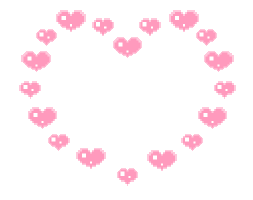Mustang
ZM
I know girls that were married at 16. The concept of choice was kind of there but only talked about, never offered sincerely. I've never really thought about it because it's one of those things. The girls getting married wanted to get married. They wanted what their parents wanted because all their lives they'd learned that there was nothing else better for them. They could have careers, hobbies, education; but they knew what the priority was. A girl is like a diamond. A girl is a gift. She never belongs to her mother.
This film made me hugely uncomfortable. I'd never thought about my friends from Arabic school. I'd never thought about my cousins. I'd never thought about Jojona and Lileh and Saanat. They're happy, but would I be? I've never been told that marriage is my end goal. My Dadi takes great pride in the fact I've been raised the same way she raised her sons. It's not a source of shame, but I am the source of her pride. I live life on my own terms. I live vicariously for her. I make my own decisions and I cherish the way that tastes because not every woman in my family has been able to. I wear trousers. I drink tea with my uncles and watch the cricket instead of always going into a back room with the women. (Don't get me wrong. I like drinking tea with my aunts. But sometimes I just wana watch the cricket. And I have that choice.)
Not every girl does.
Full disclosure: we saw this film at the Barbican - White middle class Meccah. I think my main problem was the context or situation i viewed it in. I can't put my finger on where the problem I had rests. I can't quite chew it. It wasn't that I was thinking about things I'd never questioned. It was where and how I was being made to think about it.
This is a conversation that needs to happen, but on our own terms.
By viewing this film with the edge of a white - gaze - typa - thing, it became something else. Gabrielle described it like open heart surgery and sent me this: ‘It’s like some intensively sensitive story turned inside out, and for the body on the table the film might work to recuperate and heal them, but like operating theatre becomes cinema, I wonder where I am in relation to this patient? Like I’m standing behind the surgeons like the most insidious voyeur, amongst culture vultures eating overpriced jellybeans. And all the while (in spite of this structure) the most careful operation is carried out, and it’s poetic and expert and sincere. I'm not oppressed for my race, I don't need operating on, Mustang isn't for me; so what does it mean to enjoy and witness and believe in it anyway? What good does my crying do?'
The way we view things changes them. It's like the dress (u kno the dress. The blue&black/white&gold one). The science broke it all down and in the end the scientists decided it was all about the surrounding light in the room and how ur eyes adjusted to it. As a non-White artist, you can make a piece of work that addresses a specific audience but you have no guarantee, no safeguard that your message//meaning//whatever is as intended. The things you make are never yours fully. They are subject to context and space and format and actually audiences are never gona receive work in the same way. We never come into a gallery or a theatre or anywhere fresh and new like babies. We bring bags with us, coats, daily banalities and all sorts of preoccupations that affect and divert and change us. That's not a fault. It's just something I've never had to think about until now.
The way I saw this film felt like I sat down in a dark room, and slowly slowly a hand came and started stroking a massive scab in the palm of my hand. As the film went on the fingers on the hand applied more pressure and started scratching. I didn't feel myself bleeding. But when i walked out I was covered and sticky and raw and it stung when I tried to touch things. I had no idea how it happened.

